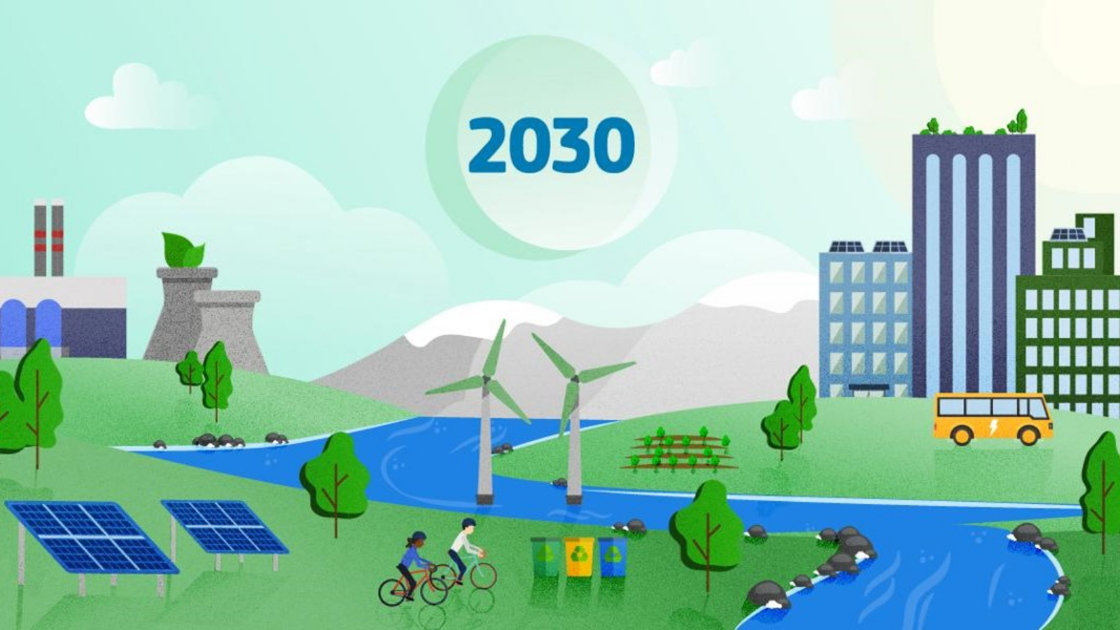We will never allow that workers fall victim of this structural change. A just transition for all must be the guiding principle, backed by adequate financial resources as well as sectoral plans and strategies to support a sustainable and socially responsible change.
Today, the European Commission has announced its ‘2030 climate target plan’ that will shed light on the pathway towards reaching the European Green Deal objectives. As expected, the Commission will propose a 55% cut of greenhouse gas emissions by 2030 (compared to 1990 levels) and revise the EU climate policy framework accordingly.
Even if this upward revision would bring the EU climate policy framework closer to what science requests, the plans outlined raise many questions and concerns for workers in sectors represented by industriAll Europe. Besides, workers in mining, energy and manufacturing industries are already severely hit by COVID-19 and the unprecedented economic downturn it has triggered, on top of the structural changes underway and still to come.
Decarbonisation has become a matter of “how” rather than “if” it should happen. Preserving the status quo is clearly not an option. IndustriAll Europe insists, however, that decarbonisation and the transition of our sectors strictly follow just transition principles. This includes an industrial policy that is fully in line with all Sustainable Development Goals, active labour market policies to support and accompany workers through structural change, social protection to provide a safety net where needed and the full involvement of workers and their unions to steer the transformation by means of social dialogue and constructive industrial relations. Ignoring the social and labour dimensions of climate policy would undermine societal support for one of the greatest challenges of our times and risk a social backlash.
From an industrial policy perspective, industriAll Europe welcomes all initiatives aimed at building an EU low-carbon industry that will provide the jobs of tomorrow. Among others, these include hydrogen, renewable energy, the circular economy, or electric mobility. The EU recovery strategy and related plans should give an unprecedented boost to those initiatives. However, some proposals such as the reform of the ETS, the increase of CO2 standards for cars or the possible phase out date for internal combustion engines will have a strong impact on industrial sectors and their workforce. What we are missing here, are clear proposals on how to avoid disruptive changes. The impacted sectors require concrete and comprehensive sectoral roadmaps to smooth their transition to carbon neutrality by 2050. These must now also address the increased 2030 ambition. For each sector we need to know the investment needs, technological options, missing infrastructures, and skills requirements related to reaching carbon neutrality.
Finally, the upward revision of the 2030 target increases the need to significantly strengthen the framework and resources available to anticipate change. The just transition fund is already insufficient to cope with the decarbonisation of coal-dependent regions. If other sectors like automotive and energy intensive industries were to be included in the mechanism, it would amount to a pitiful sprinkle of support.
Judith Kirton-Darling, industriAll Europe Deputy General Secretary:
“Workers in our sectors will be strongly affected by decarbonisation and they are deeply concerned for their future. They rely on EU and Member State support and we will never allow that they fall victim of this deep structural change. A just transition for all must be the guiding principle, backed by adequate financial resources as well as sectoral plans and strategies to support a sustainable and socially responsible change.”
IndustriAll Europe will play its part in the process and support its members build capacities and strategies to shape a just transition in our sectors.
Contact: Andrea Husen-Bradley (press and communication), Benjamin Denis (senior adviser industrial policy)
